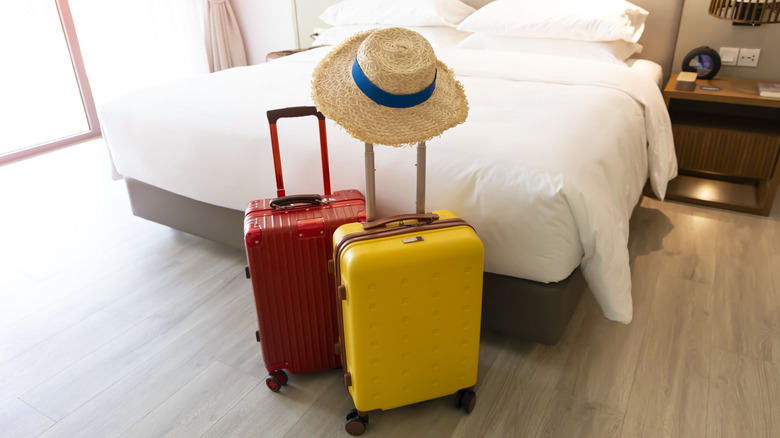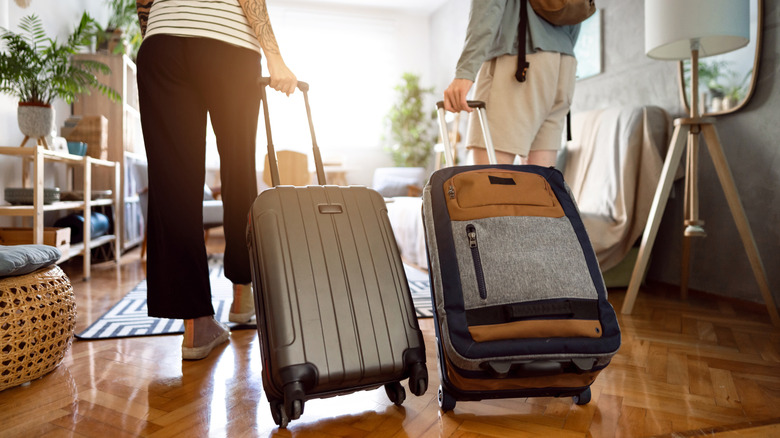The Easy Trick To Tell If Your AirBnb Will Be More Like A Hotel, Per Rick Steves' Son
While Rick Steves prefers "characteristic" European hotels, his son has long been in the AirBnb fan club. Andy Steves — traveler, tour leader, and author — has seen it all since this genius startup first got its bearings. In fact, he's stayed in dozens of vacation rentals and even hosted guests at his own AirBnbs. So when he shares a trick to spot which listings will feel cozy and which will feel more like a chain hotel, we're listening.
According to Andy, the name of the apartment is a big tell. "If it's denominated with any sort of number, it likely means the location is part of a larger operation — meaning that your AirBnb travel will be more like staying in a hotel," Steves writes on his blog. "For business travelers, that's great (and oftentimes just the point!), but for others, it lacks a personal touch." Another hint is if the property is managed by a group or another person besides the likely owner. These types of rentals may be well-run and consistent, but they're less likely to have that personalized charm.
On the flip side, if you spot details on the listing like quirky kitchen art, knick knacks, or mentions of pets, it probably means someone actually lives there when it's not being rented — or lives on the property. Those are where you're more likely to find local tips and an authentic vibe. Steves also says not to write off new listings with few reviews. "A lack of reviews often means cheaper pricing than the location potentially deserves," Steves shares. "The AirBnb algorithm encourages hosts to underprice their new locations to generate traffic, happy guests and more reviews. Just make sure the photos pass the test."
How to choose the right AirBnb for your travel style
Andy didn't just grow up traveling — he also became an AirBnb host himself, running short-term rentals in Prague and Medellin. His experience on both sides of the platform gives him a unique take on what makes for a swoon-worthy accommodation. But he finds a big benefit about AirBnb is the range and flexibility. "You can choose to stay with a local (a shared space) or have the place to yourself, which is especially ideal for a group of friends," Steves shares on his website. So before you send that booking request, figure out what kind of experience you want.
If your priority is hotel-style ease — think self check-in, fresh towels, and basic essentials — then a professionally managed apartment might be what you're after. These listings usually have high ratings and fast response times. The owner likely doesn't live there, and there may even be multiple units in the same building. But if you're after something that feels more like a cozy bed and breakfast, look for unique personal touches. Bonus points if past guests mention thoughtful extras — like wine, snacks, or handwritten notes. These rentals often have more character, better kitchen setups, and local tips you won't find on TripAdvisor.
Another upside to homeowners making extra money hosting their own place or renting it out while they're gone is that it's more organic. Rick Steves' crucial reason you may want to avoid staying at AirBnbs is the issue of gentrification. Simply put, when cookie cutter rentals flood the market, locals get priced out by tourists. It can create a housing crisis, one argument to think twice before renting a local apartment to save a buck.

